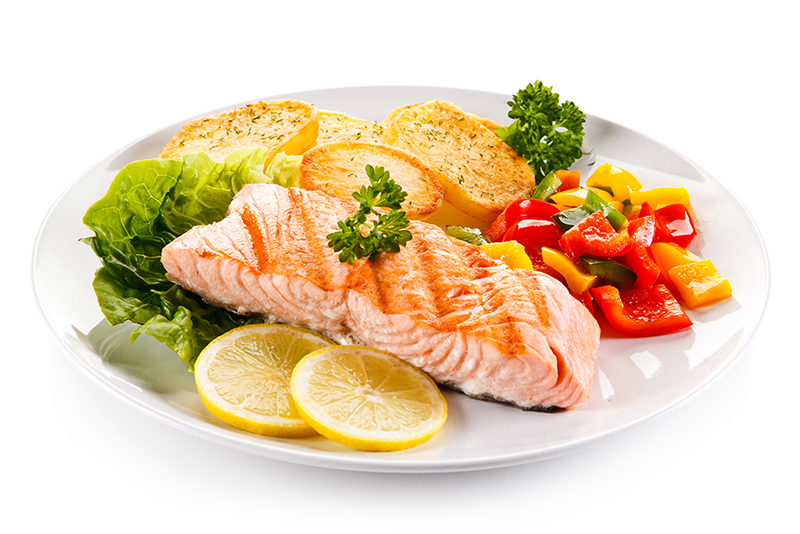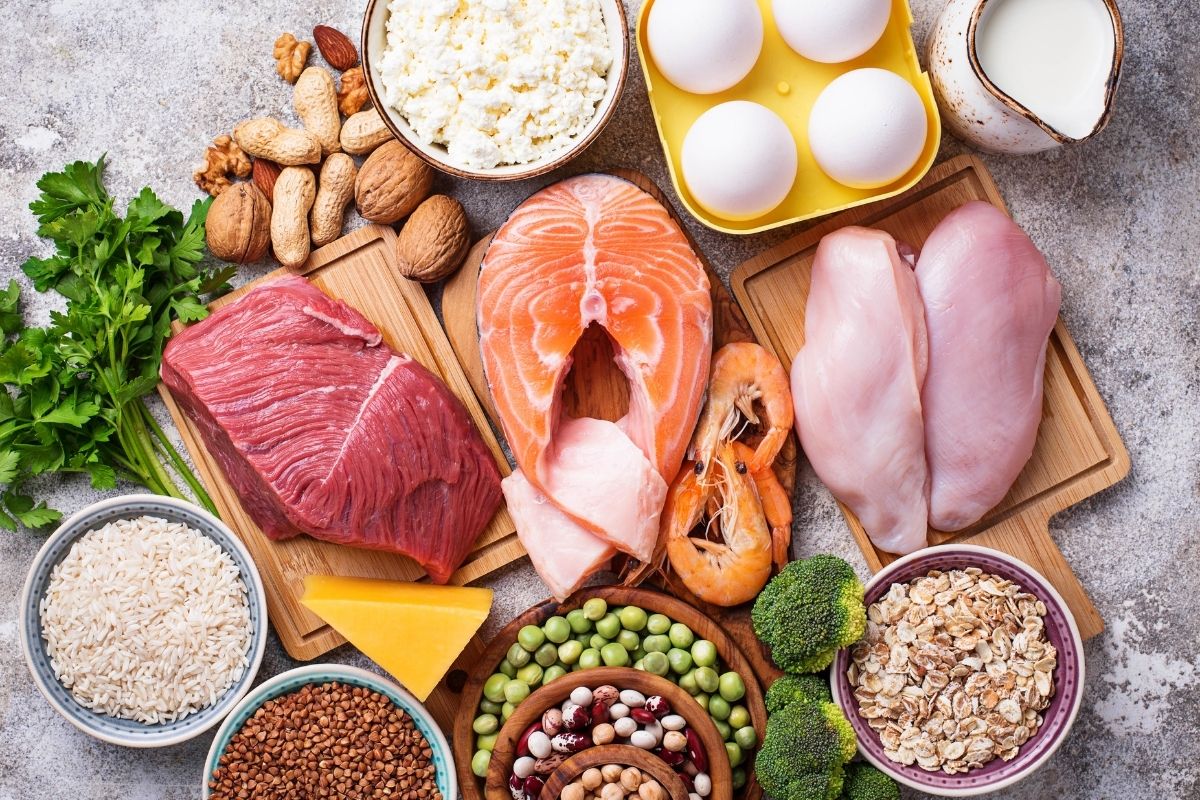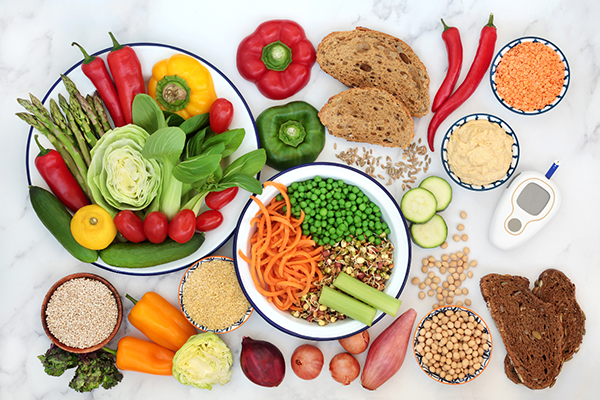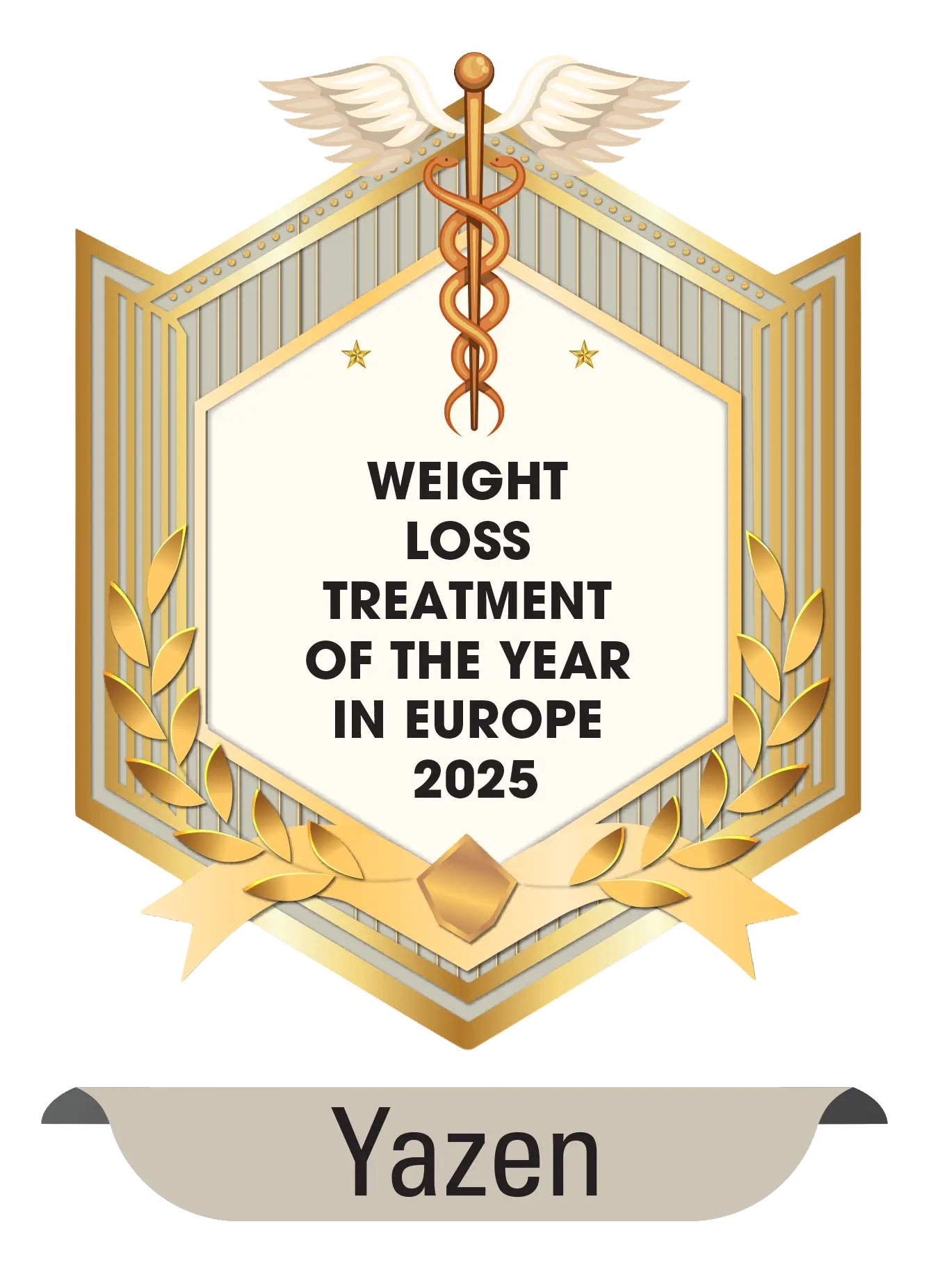How much protein per day to build muscle
Protein is one of the body’s most important building blocks and plays a central role in maintaining and building muscle — especially when combined with strength training. But how much protein do you need per day if you want to build muscle?

Protein is important for muscle building
When you do strength training, tiny microscopic tears are created in the muscle tissue. It’s when these repair that muscles grow and become stronger. Protein provides the amino acids required for this process — known as muscle protein synthesis — to occur efficiently. A sufficient protein intake each day is therefore a prerequisite for both recovery and muscle gain.
Studies clearly show that a higher protein intake, combined with strength training, leads to greater muscle growth and strength increases compared with lower intakes (1,2).
Protein per kilogram of body weight per day
How much protein you need depends on several factors: body weight, age, physical activity level, and training goals. Daily protein intake is usually expressed in grams per kilogram of body weight per day (g/kg/day).
For healthy adults (18–65 years) who do not train regularly, the recommended intake is 0.83 grams of protein per kilogram of body weight per day, or that 10–20% of your calories come from protein (3). For a person who weighs 80 kg and eats 2,500 kcal, that means between 63–125 g of protein, which is 0.8–1.6 g per kg of body weight per day. This is the amount needed to maintain the body’s tissues and avoid muscle loss.
Older adults have higher protein needs
After the age of 65, the body’s sensitivity to protein decreases — a phenomenon called anabolic resistance. This means the same amount of protein triggers a lower muscle protein synthesis. Older adults therefore have higher protein needs and should aim for 1–1.2 g protein/kg per day. In cases of illness, reduced appetite, rehabilitation or weight loss, needs can rise to 1.5 g/kg per day (4). The combination of strength training and a higher protein intake is the most effective strategy for preserving muscle mass, strength and functional capacity with age.
Protein for maximal muscle growth
There is a difference between covering the body’s basic needs and optimising your protein intake for a specific purpose. If you train regularly and want to build muscle, improve your strength and body composition, a considerably higher intake is recommended. If you don’t get enough protein, you risk losing muscle mass. The International Society of Sports Nutrition recommends that people who strength train and want to increase muscle mass should eat between 1.4 and 2.0 g/kg per day (1).
A comprehensive meta-analysis based on 49 studies and almost 1,900 participants showed that a higher daily protein intake produced greater increases in fat-free mass and strength compared with lower intakes. The effect increased up to around 1.6 g protein/kg/day, but plateaued thereafter. To account for individual differences and maximise results, the researchers therefore recommend a range of 1.6–2.2 g protein/kg per day (2).
This means most people who do strength training get the best results around 1.6 g/kg, while those with a high training volume, large muscle mass or a calorie deficit may benefit from approaching the upper level of 2.2 g/kg. This level is considered both safe and effective for building muscle and preserving fat-free mass during strength training.
Do you need more protein if you want to lose weight?
If you are trying to lose weight, the risk of losing some muscle mass increases. A higher protein intake of 1.4–2.2 g protein/kg per day, combined with strength training, helps preserve and build muscle and promotes a healthy body composition. Protein is also the nutrient that provides the best satiety per calorie. It is more satiating than both fat and carbohydrates, which can make it easier when you want to reduce your weight.
For people with overweight or obesity, the calculated protein requirement can become relatively high when it is based on actual body weight, because a larger share of the weight consists of fat mass, which does not require as much protein. An excessively high protein intake can also make it difficult to get enough of other important nutrients. However, research shows that a low protein intake increases the risk of losing muscle mass during weight loss. A systematic review and meta-analysis found that intakes below 1 g protein per kg body weight per day were linked to greater muscle loss in people with overweight and obesity, whereas 1.3 g protein per kg per day was the lowest level that preserved muscle mass (5). For example, that corresponds to around 156 g of protein per day for a person who weighs 120 kilos.
At Yazen, we calculate protein needs based on target weight and recommend roughly 1.5–2 g protein per kilogram of body weight (target weight) per day, with individual adjustments.
How to calculate your daily protein needs
To work out how much protein per day you need, start with your body weight in kilograms and multiply it by the amount of protein you aim to eat per kilogram of body weight.
Formula: body weight (kg) × desired protein per kg (g/kg)
Example: If you weigh 80 kg and want to eat 1.6 g protein per kg, multiply 80 by 1.6 = 128 g protein per day.
Tip: To see how much protein you actually eat per day, try logging everything you eat and drink for a period of time.
How to build muscle effectively – training, recovery and protein
Building muscle isn’t just about eating enough protein each day — training is the decisive signal that triggers muscle growth. Protein then acts as the raw material your body uses to repair and build stronger tissue. For the best results, combine three factors:
- Progressive strength training
- Sufficient protein intake
- Recovery and sleep
Progressive strength training means gradually increasing the load or training volume to keep stimulating your muscles to adapt. A good guideline is to train your whole body at least twice per week, focusing on major muscle groups such as legs, chest, back and shoulders. By combining training with adequate recovery and a protein-rich diet, you give your body optimal conditions for muscle growth.
Do you need protein straight after training?
Protein timing refers to when you consume protein relative to training — whether it makes a difference to eat protein before, immediately after, or several hours after a session. For a long time it was believed you needed protein immediately after training, within the so-called anabolic window, to maximise muscle building.
Newer research shows this “window” is much longer than previously thought. The body remains receptive to protein intake for several hours — in fact up to a day — after strength training (6). This means you don’t need to rush to a protein shake right after your workout.
What matters most for muscle growth and recovery is your total protein intake. A large meta-analysis of over 20 studies found that differences between people who took protein immediately after training and those who didn’t disappeared once total daily protein intake was accounted for (7).
In other words: it’s the daily amount of protein per kilogram of body weight that drives your results — not whether you drink a shake within half an hour. For most people, it’s enough to spread protein across the day and make sure one meal falls close to training to support recovery and help you hit your daily target.
Protein-rich foods – the best sources for building muscle
Most foods contain some protein, but the amount varies. Good protein sources for muscle growth include both animal and plant-based options.
Animal protein
Chicken, turkey, beef, fish, eggs, and dairy products such as quark, yoghurt, and cottage cheese contain complete proteins of high quality. This means they provide all essential amino acids in sufficient amounts.
Plant protein
Beans, lentils, chickpeas, grains, nuts, and seeds, as well as soy-based products such as tofu, tempeh, and soy mince, are all good plant-based protein sources. Most plant proteins have slightly lower protein quality, except for soy and quinoa, as they may contain smaller amounts of one or more essential amino acids. This is rarely an issue, especially if your total protein intake is sufficient and varied, since different amino acids complement each other. Research shows that plant-based protein sources can support muscle growth and strength just as effectively as animal proteins (6).
Tips for increasing your protein intake
Include a protein-rich component in every meal, such as chicken, fish, eggs, quark, or legumes. Snacks can also help you increase your daily intake — for instance, cottage cheese, Greek yoghurt, eggs, protein pudding, or edamame beans. Try bean or lentil pasta for extra protein, or mix beans and lentils into rice and grains. Spreading your protein intake evenly throughout the day — about 20–40 grams per meal — makes it easier to meet your daily needs.
Protein supplements – a practical addition
For most people, it’s possible to get enough protein from food, but supplements can be a convenient option, especially if you are very physically active, follow a plant-based diet, have a low appetite, or find it difficult to meet your needs through food alone. The most common supplements are whey, casein, pea, and soy protein. These can be used in smoothies, porridge, puddings, or as regular shakes.
Summary
- For healthy adults who do not exercise, the recommendation is about 0.8 grams of protein per kilogram of body weight per day. Healthy older adults over the age of 65 are recommended 1–1.2 g of protein per kilogram per day. However, this is not the optimal amount of protein for building muscle mass.
- To build muscles and become stronger, strength training is the single most important factor. After that, a higher protein intake can improve results and body composition.
- For people who train regularly, the recommendation is 1.4–2.2 g of protein per kilogram per day, depending on goals, training experience, and energy balance.
- During weight loss, the need for protein increases to preserve muscle mass and promote a favourable body composition.
- Protein can come from both animal and plant-based foods, and supplements can be used if needed.
- By combining strength training, recovery, sleep, and a protein-rich diet, you give your body the best conditions to build muscle and perform at its best.
References
- Jäger, R. et al. (2017). International Society of Sports Nutrition Position Stand: Protein and exercise. JISSN, 14(20).
- Morton, R. W., Murphy, K. T., McKellar, S. R., Schoenfeld, B. J., Henselmans, M., Helms, E., Aragon, A. A., Devries, M. C., Banfield, L., Krieger, J. W., & Phillips, S. M. (2018). A systematic review, meta-analysis and meta-regression of the effect of protein supplementation on resistance training-induced gains in muscle mass and strength in healthy adults. British journal of sports medicine, 52(6), 376–384.
- European Food Safety Authority (EFSA) Panel on Dietetic Products, Nutrition and Allergies (NDA) (2012). Scientific opinion on dietary reference values for protein, EFSA Journal, 10(2): 2557. https://doi.org/10.2903/j.efsa.2012.2557 [27 oktober 20225].
- Bauer, J., Biolo, G., Cederholm, T., Cesari, M., Cruz-Jentoft, A. J., Morley, J. E., Phillips, S., Sieber, C., Stehle, P., Teta, D., Visvanathan, R., Volpi, E., & Boirie, Y. (2013). Evidence-based recommendations for optimal dietary protein intake in older people: a position paper from the PROT-AGE Study Group. Journal of the American Medical Directors Association, 14(8), 542–559.
- Kokura, Y., Ueshima, J., Saino, Y., & Maeda, K. (2024). Enhanced protein intake on maintaining muscle mass, strength, and physical function in adults with overweight/obesity: A systematic review and meta-analysis. Clinical nutrition ESPEN, 63, 417–426.
- Antonio J. et al. (2024). Common questions and misconceptions about protein supplementation: what does the scientific evidence really show? Journal of the International Society of Sports Nutrition, 21(1), p.2341903.
- Schoenfeld B.J., Aragon A.A. & Krieger J.W. (2013). The effect of protein timing on muscle strength and hypertrophy: a meta-analysis. Journal of the International Society of Sports Nutrition, 10, Article 53.

October 28, 2025
December 4, 2025
Start your weight loss journey with Yazen today
Everything you need to do is to create an account and answer some questions about your health
.svg)
.svg)
More articles
Protein and weight loss: effects, benefits and risks
Protein can be a helpful support if you’re aiming to lose weight in a sustainable way. It can help you feel fuller for longer and support your body in maintaining muscle mass when you’re eating fewer calories. But how much protein do you actually need when trying to lose weight, what are the benefits and possible risks, and how can you increase your protein intake in everyday life? In this article, we go through everything you need to know about protein and weight loss.
Low-GI foods: recipes and guide
The GI method was originally developed to help people with diabetes, but has since become a popular approach for healthier eating and more stable blood sugar levels. GI (glycaemic index) describes how quickly carbohydrates are broken down and absorbed into the bloodstream – the lower the GI, the more slowly blood sugar rises. In this guide, we explain what low-GI foods are and share practical tips for creating meals with a lower glycaemic index.
Weight loss supplements: options, effects and risks
Weight loss supplements are often marketed as quick, easy fixes, with promises of reduced appetite, more energy and increased fat burning. In reality, the effect is usually modest. In some cases they can be a small addition to a healthy diet, but they do not replace what really affects weight and health in the long term: everyday habits, energy balance and behaviour.




.svg)

















